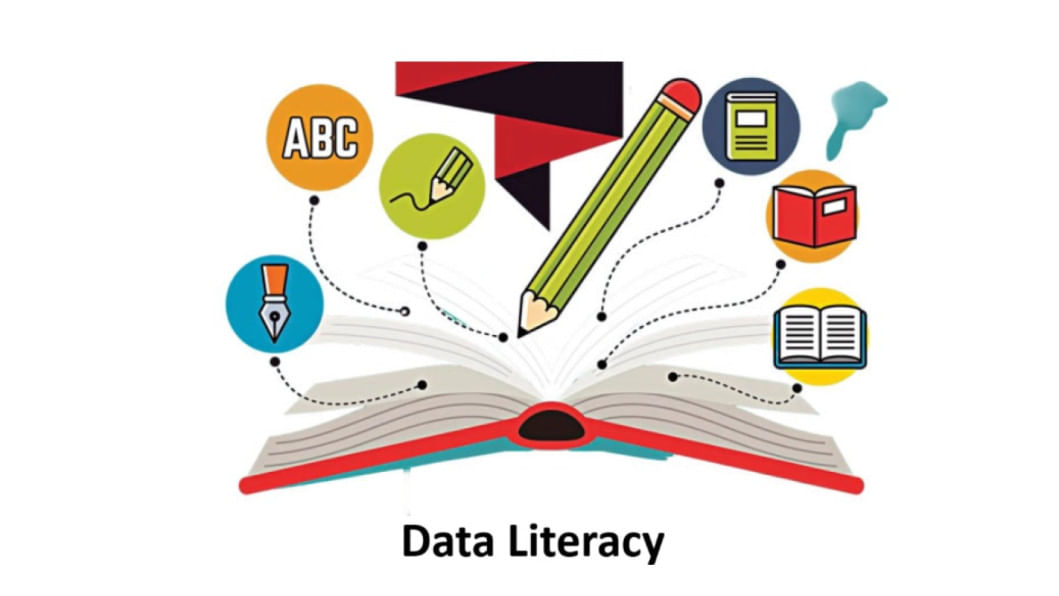Data literacy not optional but essential for bureaucrats

The increasing demand for evidence-based results to measure the ongoing rapid transformation across all spheres of economic and social progress has created a compulsion for bureaucrats at the policy level to understand data honestly and use it critically, ensuring transparency and accountability in public activities.Data literacy is the ability to read, understand, create, evaluate, and communicate data as information.It is time for bureaucrats to understand data clearly and appreciate the way i...
The increasing demand for evidence-based results to measure the ongoing rapid transformation across all spheres of economic and social progress has created a compulsion for bureaucrats at the policy level to understand data honestly and use it critically, ensuring transparency and accountability in public activities.
Data literacy is the ability to read, understand, create, evaluate, and communicate data as information.
It is time for bureaucrats to understand data clearly and appreciate the way it speaks.
Understanding data is no longer merely optional; it is an essential tool for feasible policy formation, efficient and effective public administration, prompt service delivery, and better governance—meaning transparency, accountability, and stronger trust among stakeholders.
Whether generalists or professionals, all government officials should first know the sources of data: administrative data collected by programme-implementing agencies for progress monitoring and self-evaluation, or official data collected through household surveys and censuses on population, agriculture and livestock, climate and disasters, etc., and released by the National Statistical Organisation (NSO)—the Bangladesh Bureau of Statistics (BBS) in the Bangladeshi context.
Officials must understand the limitations of data collection, sampling issues, data gaps, and quality concerns.
They must be able to interpret economic indicators such as GDP and growth, commodity price data and inflation, inequality and poverty, labour force surveys and employment; and social indicators such as health and nutrition, out-of-pocket expenditure for health services, education, and demographic data—e.g., human population, its size and composition, fertility, mortality, and migration.
Interpreting and using data will be equally important for planning, monitoring, and tracking programmes—response and delivery.
Furthermore, communicating data to non-technical audiences—ministers, politicians, media, and the public—should be timely, clear, transparent, and honest.
Progress and development in data literacy, including the gaps and challenges exposed, require careful fostering. "Bangladesh Open Data – Data for All" is a commendable initiative.
The platform is intended to provide access to public data—economic and social development indicators, transport, technology, and infrastructure—along with their visualisations and potential for reuse.
Recently (2025), the government approved the Data Dissemination Policy and the Statistical Compilation, Publication and Preservation Policy, which grant BBS, the NSO, greater autonomy to publish key data (GDP, inflation, etc.) without prior approval from ministers or the highest political authorities.
An independent taskforce established in April 2025 to strengthen data quality, transparency, and access at the BBS submitted its recommendations in September 2025.
These aim to modernise the statistical infrastructure and reinforce public trust in official data.
Implementing the recommendations will require strong government commitment to transform BBS into an independent NSO (as the Taskforce proposed renaming BBS to StatBD, to be administered by a chief statistician as head of the organisation, rather than run by an additional secretary).
The focus will be on building interoperable digital frameworks for data sharing through the formulation of an AI Policy, data governance rules, etc.
The sooner bureaucrats—both at implementation and policy levels—realise these priority changes, the better.
Concerns remain regarding the constraints faced by bureaucrats in skill development and capacity enhancement, as most civil officials are not trained in statistics.
There are also limitations in the proper allocation of financial and technological resources.
There is an urgent need for institutionalised and regular training for bureaucrats at all levels (central to upazila) in statistics, data analytics, data visualisation, interpreting indicators, and understanding uncertainty—through the creation of capacity-building programmes.
The independent taskforce has also recommended establishing a StatBD Training Academy by allocating the necessary resources as soon as possible.
There is no doubt that the Academy will encourage transparency around data methodology and changes, as well as promote a data culture and ethical norms in the country—where unfavourable data are not suppressed but addressed.